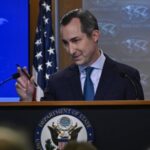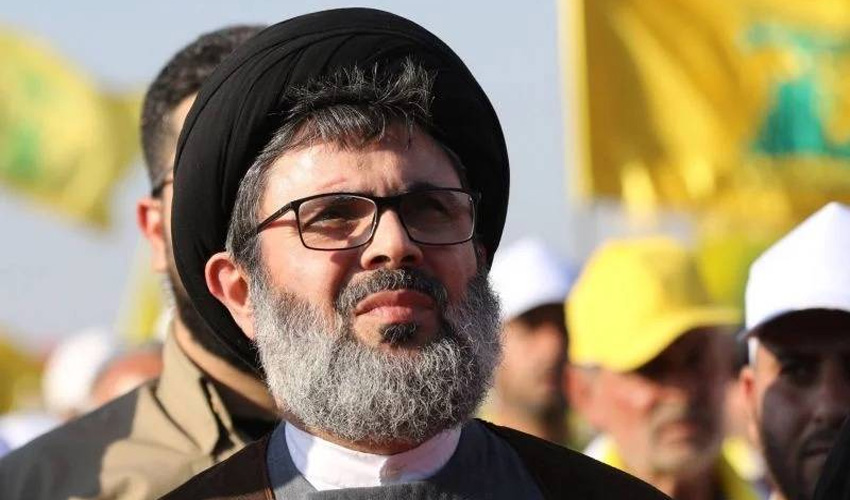Lebanese Hezbollah confirmed one of its most senior officials, Hashem Safieddine, was killed in an Israeli airstrike jolting the militant group’s leadership. He was widely expected to be next in line to succeed late secretary-general Hassan Nasrallah when intense Israeli military operations began in southern Lebanon, a Hezbollah stronghold.
One of the most powerful officials of Hezbollah, Safieddine, had been performing the work of the organization along with deputy secretary-general Naim Qassem since Nasrallah was assassinated. Though he had never been offered any official nomination as the new secretary-general, it was obvious that he would be the one to replace Nasrallah. A cousin of Nasrallah, he was a key member of Hezbollah’s Jihad Council, who managed all the group’s military activities and led the group’s executive council, which oversaw the financial and administrative affairs of the group.
He had assumed public functions for the past year, speaking on behalf of Hezbollah at rallies and funerals-duties Nasrallah had performed long before security considerations forced him to curtail his public appearances.
That will be a disastrous blow to Hezbollah, at least because of the sustained increase in Israeli aerial and ground aggression on southern Lebanon, Bekaa Valley, and southern districts of Beirut, territories which the group has dominated for years, and various Israeli raids have targeted some of the critical Hezbollah facilities. Safieddine’s loss follows a spate of other losses in leadership that will further undermine the ability of the organization to coordinate military actions in the event of Israel’s lightning-fast attacks.
Israeli forces are pushing deeper into Lebanon aimed at hitting Hezbollah command centers and positions in a tremendous sweep to mop up the influence of this organization. The Hezbollah fighters are fighting aggressively against the Israeli forces while trying to stay close in close combat with the ground invasion, remaining under steady aerial bombardments.
Safieddine was a significant figure in Hezbollah, especially during the consolidation phase of forming its military plans and managing the organizational setup. His assassination will create an enormous leadership vacuum within the organization, and questions surface on the way the outfit will lead itself and function afterward. Coupled with continued Israeli military threats, the power vacuum would seriously destabilize the leadership order of this group and subsequently ease its control over southern Lebanon.
No statement has come from where the name of Safieddine is mentioned as Hezbollah’s new secretary-general. Still, his death sheds light on the vulnerabilities of the group’s top leadership and the difficulties this leadership faces in ensuring that operational continuity is upheld during a time of continued fighting.
As Israeli forces pound Lebanon, Hezbollah is suffering heavy losses, with the death of Safieddine, amongst other senior leaders, has weakened the core of this group. This war hastens the whole conflict because neither side is inclined to back down.
Hashem Safieddine’s death is a significant blow to Hezbollah leadership but a portentous development in the wider Israel-Hezbollah conflict, one that continues destabilizing Lebanon and threatening broader regional security.















